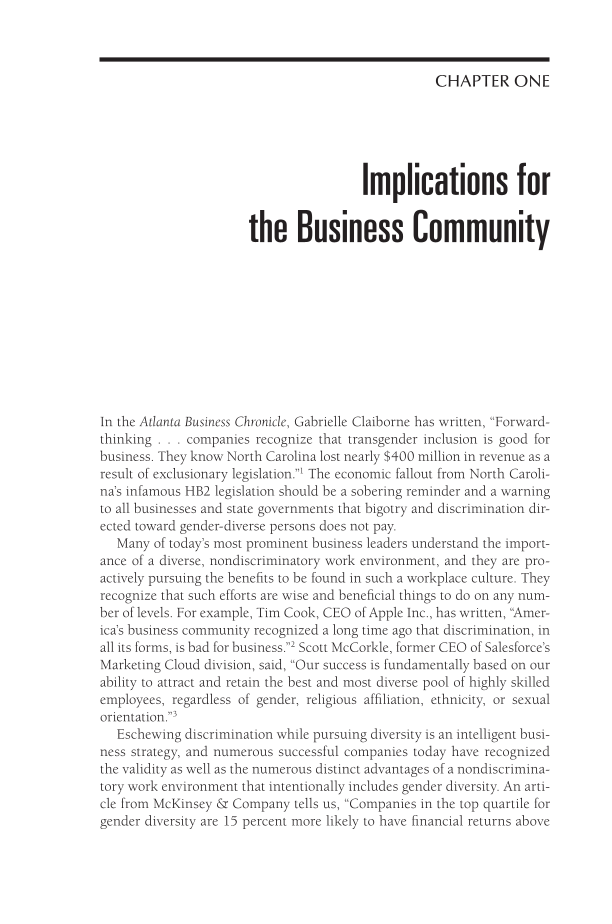CHAPTER ONE Implications for the Business Community In the Atlanta Business Chronicle, Gabrielle Claiborne has written, “Forward- thinking . . . companies recognize that transgender inclusion is good for business. They know North Carolina lost nearly $400 million in revenue as a result of exclusionary legislation.”1 The economic fallout from North Caroli- na’s infamous HB2 legislation should be a sobering reminder and a warning to all businesses and state governments that bigotry and discrimination dir- ected toward gender-diverse persons does not pay. Many of today’s most prominent business leaders understand the import- ance of a diverse, nondiscriminatory work environment, and they are pro- actively pursuing the benefits to be found in such a workplace culture. They recognize that such efforts are wise and beneficial things to do on any num- ber of levels. For example, Tim Cook, CEO of Apple Inc., has written, “Amer- ica’s business community recognized a long time ago that discrimination, in all its forms, is bad for business.”2 Scott McCorkle, former CEO of Salesforce’s Marketing Cloud division, said, “Our success is fundamentally based on our ability to attract and retain the best and most diverse pool of highly skilled employees, regardless of gender, religious affiliation, ethnicity, or sexual orientation.”3 Eschewing discrimination while pursuing diversity is an intelligent busi- ness strategy, and numerous successful companies today have recognized the validity as well as the numerous distinct advantages of a nondiscrimina- tory work environment that intentionally includes gender diversity. An arti- cle from McKinsey & Company tells us, “Companies in the top quartile for gender diversity are 15 percent more likely to have financial returns above
Document Details My Account Print multiple pages
Print
You have printed 0 times in the last 24 hours.
Your print count will reset on at .
You may print 0 more time(s) before then.
You may print a maximum of 0 pages at a time.
















































































































































































































